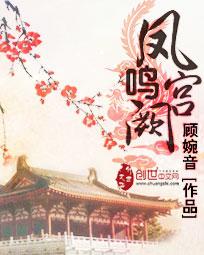CHAPTER I.
您可以在百度里搜索“Pierre: Or, The Ambiguities 艾草文学(www.321553.xyz)”查找最新章节!
BOOK V.
MISGIVINGS AND PREPARATIONS.
CHAPTER I.
IT was long after midnight when Pierre returned to the house. He had rushed forth in that complete abandonment of soul, which, in so ardent a temperament, attends the first stages of any sudden and tremendous affliction; but now he returned in pallid composure, for the calm spirit of the night, and the then risen moon, and the late revealed stars, had all at last become as a strange subduing melody to him, which, though at first trampled and scorned, yet by degrees had stolen into the windings of his heart, and so shed abroad its own quietude in him. Now, from his height of composure, he firmly gazed abroad upon the charred landscape within him; as the timber man of Canada, forced to fly from the conflagration of his forests, comes back again when the fires have waned, and unblinkingly eyes the immeasurable fields of fire-brands that here and there glow beneath the wide canopy of smoke.
It has been said, that always when Pierre would seek solitude in its material shelter and walled isolation, then the closet communicating with his chamber was his elected haunt. So, going to his room, he took up the now dim-burning lamp he had left there, and instinctively entered that retreat, seating himself, with folded arms and bowed head, in the accustomed dragon-footed old chair. With leaden feet, and heart now changing from iciness to a strange sort of indifference, and a numbing sensation stealing over him, he sat there awhile, till, like the resting traveler in snows, he began to struggle against this inertness as the most treacherous and deadliest of symptoms. He looked up, and found himself fronted by the no longer wholly enigmatical, but still ambiguously smiling picture of his father. Instantly all his consciousness and his anguish returned, but still without power to shake the grim tranquillity which possessed him. Yet endure the smiling portrait he could not; and obeying an irresistible nameless impulse, he rose, and without unhanging it, reversed the picture on the wall.
This brought to sight the defaced and dusty back, with some wrinkled, tattered paper over the joints, which had become loosened from the paste. "Oh, symbol of thy reversed idea in my soul," groaned Pierre; "thou shalt not hang thus. Rather cast thee utterly out, than conspicuously insult thee so. I will no more have a father." He removed the picture wholly from the wall, and the closet; and concealed it in a large chest, covered with blue chintz, and locked it up there. But still, in a square space of slightly discolored wall, the picture still left its shadowy, but vacant and desolate trace. He now strove to banish the least trace of his altered father, as fearful that at present all thoughts concerning him were not only entirely vain, but would prove fatally distracting and incapacitating to a mind, which was now loudly called upon, not only to endure a signal grief, but immediately to act upon it. Wild and cruel case, youth ever thinks; but mistakenly; for Experience well knows, that action, though it seems an aggravation of woe, is really an alleviative; though permanently to alleviate pain, we must first dart some added pangs.
Nor now, though profoundly sensible that his whole previous moral being was overturned, and that for him the fair structure of the world must, in some then unknown way, be entirely rebuilded again, from the lowermost corner stone up; nor now did Pierre torment himself with the thought of that last desolation; and how the desolate place was to be made flourishing again. He seemed to feel that in his deepest soul, lurked an indefinite but potential faith, which could rule in the interregnum of all hereditary beliefs, and circumstantial persuasions; not wholly, he felt, was his soul in anarchy. The indefinite regent had assumed the scepter as its right; and Pierre was not entirely given up to his grief's utter pillage and sack.
To a less enthusiastic heart than Pierre's the foremost question in respect to Isabel which would have presented itself, would have been, What must I do? But such a question never presented itself to Pierre; the spontaneous responsiveness of his being left no shadow of dubiousness as to the direct point he must aim at. But if the object was plain, not so the path to it. How must I do it? was a problem for which at first there seemed no chance of solution. But without being entirely aware of it himself, Pierre was one of those spirits, which not in a determinate and sordid scrutiny of small pros and cons—but in an impulsive subservience to the god-like dictation of events themselves, find at length the surest solution of perplexities, and the brightest prerogative of command. And as for him, What must I do? was a question already answered by the inspiration of the difficulty itself; so now he, as it were, unconsciously discharged his mind, for the present, of all distracting considerations concerning How he should do it; assured that the coming interview with Isabel could not but unerringly inspire him there. Still, the inspiration which had thus far directed him had not been entirely mute and undivulging as to many very bitter things which Pierre foresaw in the wide sea of trouble into which he was plunged.
If it be the sacred province and—by the wisest, deemed—the inestimable compensation of the heavier woes, that they both purge the soul of gay-hearted errors and replenish it with a saddened truth; that holy office is not so much accomplished by any covertly inductive reasoning process, whose original motive is received from the particular affliction; as it is the magical effect of the admission into man's inmost spirit of a before unexperienced and wholly inexplicable element, which like electricity suddenly received into any sultry atmosphere of the dark, in all directions splits itself into nimble lances of purifying light; which at one and the same instant discharge all the air of sluggishness and inform it with an illuminating property; so that objects which before, in the uncertainty of the dark, assumed shadowy and romantic outlines, now are lighted up in their substantial realities; so that in these flashing revelations of grief's wonderful fire, we see all things as they are; and though, when the electric element is gone, the shadows once more descend, and the false outlines of objects again return; yet not with their former power to deceive; for now, even in the presence of the falsest aspects, we still retain the impressions of their immovable true ones, though, indeed, once more concealed.
Thus with Pierre. In the joyous young times, ere his great grief came upon him, all the objects which surrounded him were concealingly deceptive. Not only was the long-cherished image of his rather now transfigured before him from a green foliaged tree into a blasted trunk, but every other image in his mind attested the universality of that electral light which had darted into his soul. Not even his lovely, immaculate mother, remained entirely untouched, unaltered by the shock. At her changed aspect, when first revealed to him, Pierre had gazed in a panic; and now, when the electrical storm had gone by, he retained in his mind, that so suddenly revealed image, with an infinite mournfulness. She, who in her less splendid but finer and more spiritual part, had ever seemed to Pierre not only as a beautiful saint before whom to offer up his daily orisons, but also as a gentle lady-counsellor and confessor, and her revered chamber as a soft satin-hung cabinet and confessional;—his mother was no longer this all-alluring thing; no more, he too keenly felt, could he go to his mother, as to one who entirely sympathized with him; as to one before whom he could almost unreservedly unbosom himself; as to one capable of pointing out to him the true path where he seemed most beset. Wonderful, indeed, was that electric insight which Fate had now given him into the vital character of his mother. She well might have stood all ordinary tests; but when Pierre thought of the touchstone of his immense strait applied to her spirit, he felt profoundly assured that she would crumble into nothing before it.
She was a noble creature, but formed chiefly for the gilded prosperities of life, and hitherto mostly used to its unruffled serenities; bred and expanded, in all developments, under the sole influence of hereditary forms and world-usages. Not his refined, courtly, loving, equable mother, Pierre felt, could unreservedly, and like a heaven's heroine, meet the shock of his extraordinary emergency, and applaud, to his heart's echo, a sublime resolve, whose execution should call down the astonishment and the jeers of the world.
My mother!—dearest mother!—God hath given me a sister, and unto thee a daughter, and covered her with the world's extremest infamy and scorn, that so I and thou—thou, my mother, mightest gloriously own her, and acknowledge her, and,—— Nay, nay, groaned Pierre, never, never, could such syllables be one instant tolerated by her. Then, high-up, and towering, and all-forbidding before Pierre grew the before unthought of wonderful edifice of his mother's immense pride;—her pride of birth, her pride of affluence, her pride of purity, and all the pride of high-born, refined, and wealthy Life, and all the Semiramian pride of woman. Then he staggered back upon himself, and only found support in himself. Then Pierre felt that deep in him lurked a divine unidentifiableness, that owned no earthly kith or kin. Yet was this feeling entirely lonesome, and orphan-like. Fain, then, for one moment, would he have recalled the thousand sweet illusions of Life; tho' purchased at the price of Life's Truth; so that once more he might not feel himself driven out an infant Ishmael into the desert, with no maternal Hagar to accompany and comfort him.
Still, were these emotions without prejudice to his own love for his mother, and without the slightest bitterness respecting her; and, least of all, there was no shallow disdain toward her of superior virtue. He too plainly saw, that not his mother had made his mother; but the Infinite Haughtiness had first fashioned her; and then the haughty world had further molded her; nor had a haughty Ritual omitted to finish her.
Wonderful, indeed, we repeat it, was the electrical insight which Pierre now had into the character of his mother, for not even the vivid recalling of her lavish love for him could suffice to gainsay his sudden persuasion. Love me she doth, thought Pierre, but how? Loveth she me with the love past all understanding? that love, which in the loved one's behalf, would still calmly confront all hate? whose most triumphing hymn, triumphs only by swelling above all opposing taunts and despite?—Loving mother, here have I a loved, but world-infamous sister to own;—and if thou lovest me, mother, thy love will love her, too, and in the proudest drawing-room take her so much the more proudly by the hand.—And as Pierre thus in fancy led Isabel before his mother; and in fancy led her away, and felt his tongue cleave to the roof of his mouth, with her transfixing look of incredulous, scornful horror; then Pierre's enthusiastic heart sunk in and in, and caved clean away in him, as he so poignantly felt his first feeling of the dreary heart-vacancies of the conventional life. Oh heartless, proud, ice-gilded world, how I hate thee, he thought, that thy tyrannous, insatiate grasp, thus now in my bitterest need—thus doth rob me even of my mother; thus doth make me now doubly an orphan, without a green grave to bedew. My tears,—could I weep them,—must now be wept in the desolate places; now to me is it, as though both father and mother had gone on distant voyages, and, returning, died in unknown seas.
She loveth me, ay;—but why? Had I been cast in a cripple's mold, how then? Now, do I remember that in her most caressing love, there ever gleamed some scaly, glittering folds of pride. Me she loveth with pride's love; in me she thinks she seeth her own curled and haughty beauty; before my glass she stands,—pride's priestess—and to her mirrored image, not to me, she offers up her offerings of kisses. Oh, small thanks I owe thee, Favorable Goddess, that didst clothe this form with all the beauty of a man, that so thou mightest hide from me all the truth of a man. Now I see that in his beauty a man is snared, and made stone-blind, as the worm within its silk. Welcome then be Ugliness and Poverty and Infamy, and all ye other crafty ministers of Truth, that beneath the hoods and rags of beggars hide yet the belts and crowns of kings. And dimmed be all beauty that must own the clay; and dimmed be all wealth, and all delight, and all the annual prosperities of earth, that but gild the links, and stud with diamonds the base rivets and the chains of Lies. Oh, now methinks I a little see why of old the men of Truth went barefoot, girded with a rope, and ever moving under mournfulness as underneath a canopy. I remember now those first wise words, wherewith our Savior Christ first spoke in his first speech to men:—'Blessed are the poor in spirit, and blessed they that mourn.' Oh, hitherto I have but piled up words; bought books, and bought some small experiences, and builded me in libraries; now I sit down and read. Oh, now I know the night, and comprehend the sorceries of the moon, and all the dark persuadings that have their birth in storms and winds. Oh, not long will Joy abide, when Truth doth come; nor Grief her laggard be. Well may this head hang on my breast—it holds too much; well may my heart knock at my ribs,—prisoner impatient of his iron bars. Oh, men are jailers all; jailers of themselves; and in Opinion's world ignorantly hold their noblest part a captive to their vilest; as disguised royal Charles when caught by peasants. The heart! the heart! 'tis God's anointed; let me pursue the heart! Pierre: Or, The Ambiguities




